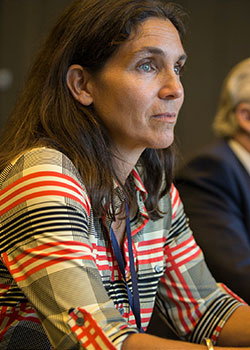Who we are
Our Mission
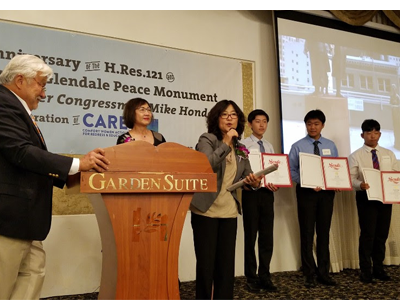
CARE (formerly known as the KAFC) is a community organization that focuses on advocacy and education regarding the “comfort women,” meaning the girls and women coerced into institutionalized sexual slavery and human trafficking perpetrated by the Japanese military during the first half of the twentieth century. The issue remains relevant to current acts of wartime sexual violence and human trafficking occurring around the world today.
A key part of our mission is to combat the historical revisionism perpetuated by Prime Minister Shinzo Abe of the Japanese government through raising awareness in the United States. Under the Abe administration, references to the “comfort women” and other Japanese war crimes have disappeared from ALL Japanese textbooks.
While international human rights institutions such as the UN Human Rights Commission and Amnesty International has repeatedly prompted Japan to acknowledge and accept legal responsibility for these crimes, so far, the Abe administration has not heeded those calls.
The History
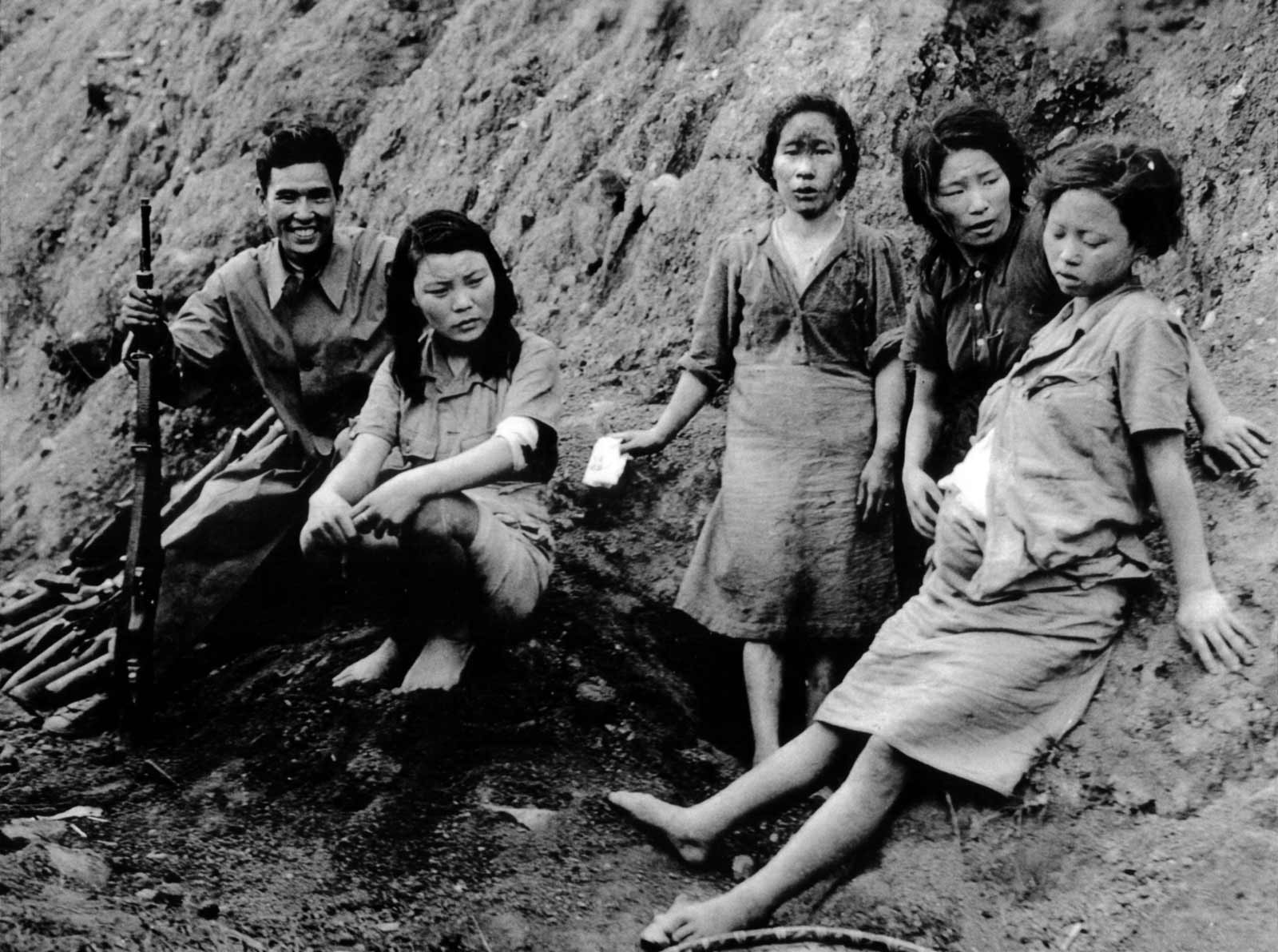
“Comfort women” is a euphemistic term for the hundreds of thousands of young women and girls who were coerced, abducted, and imprisoned as sex slaves by the Japanese Imperial Armed Forces as part of their militaristic expansion in the Asia Pacific region, beginning in 1932 until the end of World War II. As stated in House Resolution 121, passed by the U.S. House of Representatives in 2007, the “comfort women” system constituted one of the largest cases of human trafficking in the 20 th century, and one that was unprecedented in its cruelty and magnitude.
Many of the victims were in their teens. The majority were from Korea and China, but girls were also locally sourced from every occupied region, including the Philippines, Malaysia, Indonesia, East Timor, Taiwan and Hong Kong. The military authorities were directly involved in the creation and maintenance of “comfort stations.”
The conditions at the stations were sub-human and brutal. Girls were repeatedly raped, and were subject to forced sterilizations and abortions by military doctors, yet they were denied basic necessities such as food or clothing. Those who tried to escape were ruthlessly tortured or killed. The suicide and mortality rate among the victims is estimated to be around 75%; the death rate among Japanese troops at the front lines was 30%.
At the end of the war, when Japan’s surrender was imminent, the military government systematically destroyed military documents and massacred the girls at the stations in order to erase proof of the crimes that were committed. The small number of women who managed to survive suffered in pain and silence for decades due to social and cultural stigma and the physical and psychological scars inflicted by the horrors they suffered.
In 1991, Hak-sun Kim, one of the Korean survivors, became the first to break the silence. Her courage led to other survivors demanding an official apology and legal compensation from the Japanese government. These survivors or “grandmothers” became human rights activists and leaders in a global movement to hold the Japanese government accountable for its past war crimes.
Our Work
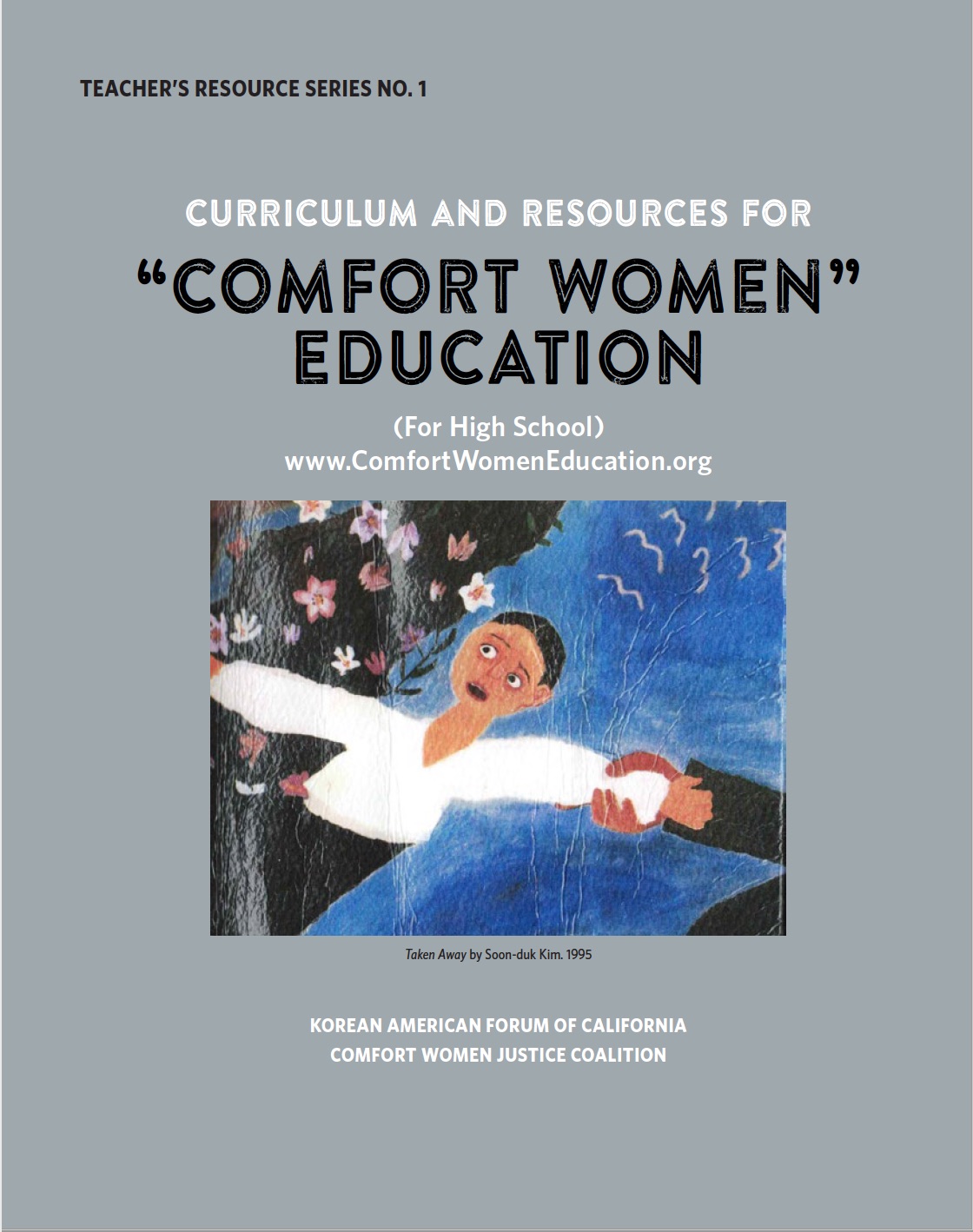
Since the passage of H. Res. 121 in 2007, we have worked on significant efforts in California and beyond. These include the installation of the Glendale Peace Monument, an issue that reached the federal courts after Japanese revisionists sued for the monument’s removal. We also advocated for the inclusion of “comfort women” issues in the California Grade 10 History/Social Science Framework. In collaboration with the San Francisco-based organization Comfort Women Justice Coalition, we supported the installation of the “Column of Strength” memorial in San Francisco and developed an educational resource guide and booklet for teachers that are free and publicly available at www.ComfortWomenEducation.org.
Advisory Board
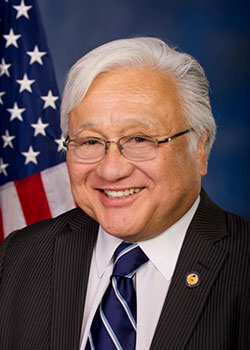
- Mike Honda is a third-generation Japanese American educator, human rights activist and politician
from California. Honda was interned in the Camp Amache in Colorado with his family when he was
one-year-old. His family returned to San Jose in 1953 where they became strawberry sharecroppers in
Blossom Valley.
While in college, Honda interrupted his studies to answer President Kennedy’s call for service in the
newly created Peace Corps. After serving for two years in El Salvador, Mike returned to San Jose State
University and earned a B.S. in Biology, a B.A. in Spanish, and an M.A. in Education. In his 30-year
a career as an educator, Honda was a teacher, Vice-Principal, Principal, and Administrator, who enriched
the education of the disadvantaged and established programs for high achievers.
In 1990, Honda was elected to the Santa Clara County Board of Supervisors and was re-elected in
1994. In 1996, Mike Honda was elected to the State Assembly; he was re-elected in 1998. In 1999,
Honda introduced an AJR27, the Assembly Joint Resolution No, 27, urging the Japanese government
“to finally bring closure to concerns relating to WWII by formally issuing a clear and unambiguous
apology for the atrocious war crimes committed by the Japanese military during WWII and
immediately paying reparations to the victims of those crimes.”
Since 2001, Honda served 8 consecutive terms as a member of the US House of Representatives. He
served in the Committee on Appropriations where he was a ranking member of the Legislative Branch
Appropriations Subcommittee served as a Chair in the Congressional Asian Pacific American Caucus
and the Congressional Anti-Bullying Caucus, Vice-Chair in the LGBT Equality Caucus, Co-Chair in
the Congressional Hepatitis Caucus, Vice-Chair in the Congressional Progressive Caucus, Co-Chair in
the Democratic Caucus New Media Working Group, Chair of Congressional Ethiopia Caucus, and a
Commissioner in the Congressional-Executive Commission on China.
Among many of his contributions in the areas such as education, raising the minimum wage,
environment, healthcare, LGBT and religious freedom, he introduced the H.Res.121 in 2007, a House
A resolution urging the Japanese government to formally acknowledge, apologize and accept historically
responsibility in a clear and unequivocal manner, refute any claims that the issue of “comfort women”
never occurred, and educate current and future generations “about this horrible crime while following
the recommendations of the international community with respect to the “comfort women.”
Following the passage of the H.Res.121, similar resolutions were passed in other governments around
the world such as Canada, the Netherlands, the Philippines, and the EU.
Honda is continuing his lifelong mission of improving human rights of the most underrepresented,
underserved and discriminated against.
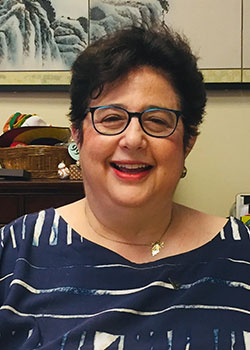
- Mindy Kotler is founder and director of Asia Policy Point, a membership nonprofit
research center in Washington, DC studying the U.S. policy relationship with Japan and
Northeast Asia. Her research focus is the relationship between history and Asian regional
security. She advised Congressman Mike Honda (D-CA) in his drafting and defense of
the 2007 Comfort Women resolution. Ms. Kotler holds a M.A. from Yale University and
a B.A. from Smith College.
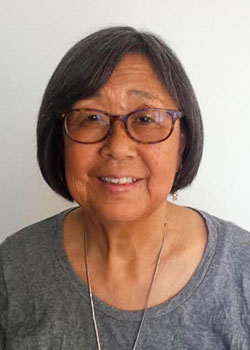
- Kathy Nishimoto Masaoka NCRR Co-Chairperson Kathy Nishimoto Masaoka was
born and raised in multicultural Boyle Heights. The Vietnam War and Asian American
Studies at UC Berkeley became important influences on her values and direction as she
came of age during the late ’60s. Since 1971, she has worked on youth, workers, housing
in Little Tokyo, and redress issues. Currently Co-chair of the Nikkei for Civil Rights &
Redress (NCRR), she works with the Education Committee, Nikkei Progressives, and
Vigilant Love Coalition to build solidarity and support for Muslims and others impacted
by discrimination. Married to Mark Masaoka and has two grandsons, Yuma and Leo.
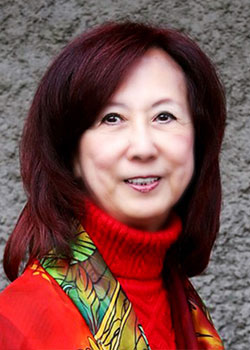
- Judge Lillian Sing is the first Asian American woman judge in Northern California. She
retired in September, 2015 to fight for justice for the “Comfort Women” after dispensing
justice in the courtroom of the San Francisco Superior Court for over 3 decades.
In December, 2016 Judge Sing was presented with the Joe Morozumi Award by the
Asian American Bar Association of the Greater Bay Area for Exceptional Legal
Advocacy. This award honors Morozumi’s “spirit and passion for justice and his tireless
advocacy for the poor and underrepresented.” On June 7, 2019 Judge Sing was honored
at the 50 Anniversary of Chinese For Affirmative Action (CAA) as one of the five
Founding Member of CAA, an organization that was established to defend and promote
the civil rights of Chinese Americans and other racial minorities in order to build a multi-
racial diverse democracy in the US.
Presently Judge Sing is the Co-chair of “Comfort Women” Justice Coalition (CWJC)
which built SF “Comfort Women” Memorial. Judge Sing urges everyone to visit San
Francisco “Comfort Women” Memorial and see for yourself the power of Truth and
Justice and learn why Osaka Mayor Yoshimura broke off 60 Years of Sister City with
San Francisco over the Memorial.
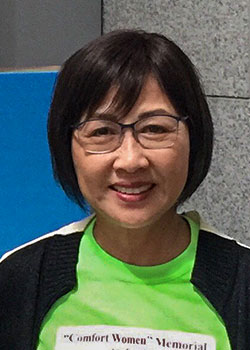
- Julie Tang is a Retired Judge of the San Francisco Superior Court. She was a highly
respected jurist and remembered in particular for helping to develop and presided over
the first Domestic Violence Court in San Francisco in 1997. Her passion for justice for
victims of violence goes beyond her judicial career. In 1997 she co-founded the “Rape of
Nanjing” Redress Coalition with Judge Lillian Sing to seek redress for the victims from
the Japanese government. Upon her retirement, Judge Tang again partnered up with
Judge Sing to form the “Comfort Women” Justice Coalition, the organization that
successfully built the San Francisco “Comfort Women” Memorial in 2017. She currently
works as a mediator for Arbitration Dispute Resolution (ADR) and spends her spare
time educating the community and fighting for justice for the “Comfort Women”
survivors.
